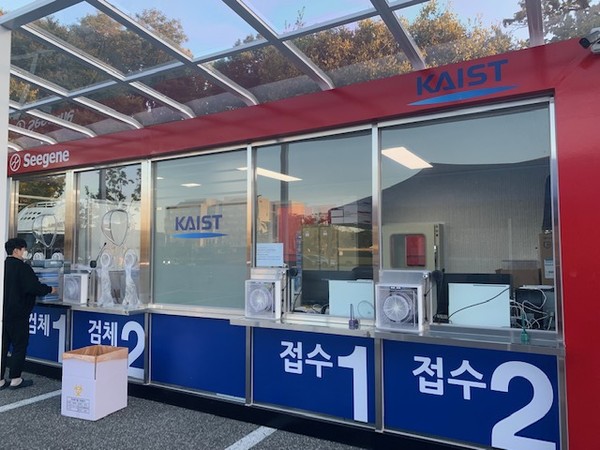On October 28, molecular diagnostic testing company Seegene started the operation of a mobile testing station on the main campus. In addition, the company donated testing reagents enough to conduct 40,000 COVID-19 tests to be used for diagnosis at the station.
The unit is an extension of a research collaboration agreement made between KAIST and Seegene in July. As part of the agreement, the two institutions joined forces to work on research projects concerned with ultrafast PCR testing, sample collection, and cloud-based data transmission and analysis.

Located in front of the auditorium (E15), The mobile unit supports the prompt delivery of the entire COVID-19 diagnosis process consisting of specimen collection, PCR testing, and results analysis, with the capacity of 7,500 tests per day. Any KAIST member can now get tested on campus and receive their results within three hours. Vaccinated people with suspected symptoms of COVID-19 can also get free PCR tests here. The testing station is open from 11 a.m. to 5 p.m. excluding weekends and national holidays. With the on-campus testing unit and the ease of social distancing restrictions in Korea, the campus is making steps to return to its pre-COVID normalcy. Prior to the donation, Seegene also helped KAIST in setting up the temporary testing site in front of the Sports Complex (N3) that was used to carry out the Daejeon City order from September 24, which required all college students residing in the dormitories to be tested for COVID-19.
The Vice President for Planning and Budget Bowon Kim commented, “As KAIST is currently preparing to conduct offline lectures in accordance with ‘Living with COVID-19’ scheme, Seegene’s donation will be particularly helpful. The two institutions will continue to cooperate, leading to not only the short-term stabilization of the campus, but also collaborative research for the vitalization of molecular diagnosis technology and the bio industry.”

